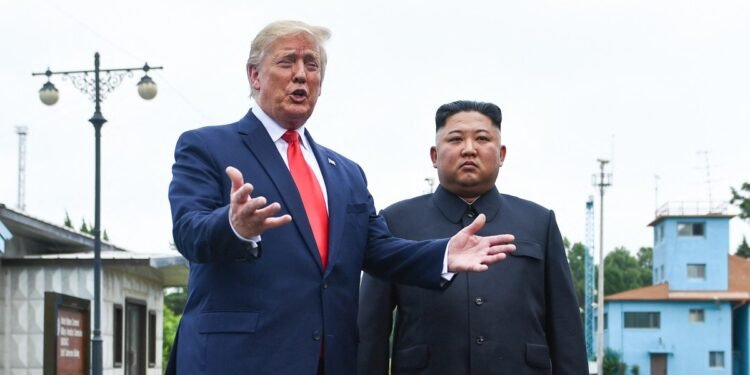Taipei, Taiwan – Asia is bracing for a second Donald Trump presidency that is poised to inject unpredictability into the region’s relations with the United States, from casting doubt on longstanding alliances to threatening to upend trillions of dollars in trade.
During his first term as president from 2016 to 2020, Trump, who scored a decisive victory against Kamala Harris in Tuesday’s election, broke with many of the longstanding but unspoken rules of US foreign policy.
He launched a trade war with China in 2018 – at a time when many countries were still courting its favour – and engaged with two of Asia’s most diplomatically isolated leaders, North Korea’s Kim Jong Un and Taiwan’s then-President Tsai Ing-wen.
In his second term, Trump has promised to implement an even more aggressive version of his “America first” vision, including a protectionist economic agenda that would raise tariffs to levels not seen since the Great Depression of 1929-1939.
“A second Trump term would move beyond the targeted tariffs of his first to a much broader target base, both within China and globally,” Steve Okun, founder and CEO of Singapore-based APAC Advisors, told media.
Indian Prime Minister Narendra Modi was among the first leaders in the region to congratulate Trump on his victory on Wednesday, saying he was looking forward to “renewing our collaboration”.
China’s Ministry of Foreign Affairs earlier expressed hope for “peaceful coexistence” with the US as Trump appeared on the verge of securing the needed 270 electoral college votes.
“We will continue to approach and handle China-US relations based on the principles of mutual respect, peaceful coexistence, and win-win cooperation,” Foreign Ministry spokeswoman Mao Ning told a regular briefing.
US relations with China, which deteriorated during Trump’s first term and have remained strained under President Joe Biden, are likely to worsen further if the former president follows through on his plans to impose a tariff of at least 60 percent on Chinese imports.









 United Arab Emirates Dirham Exchange Rate
United Arab Emirates Dirham Exchange Rate